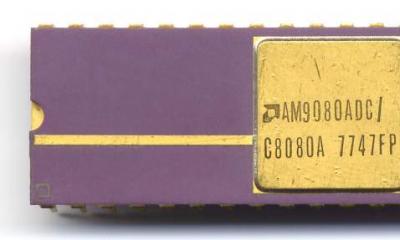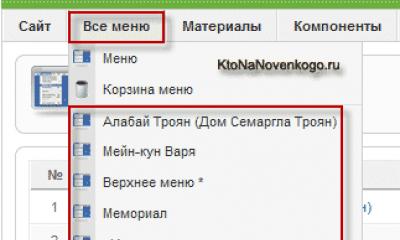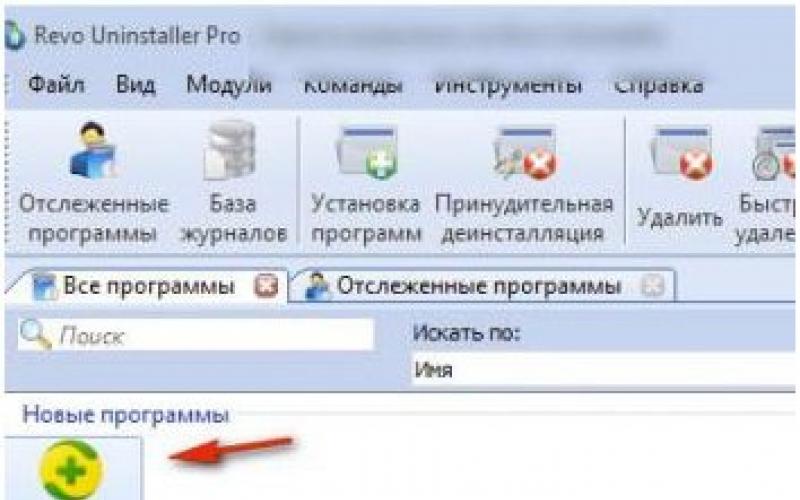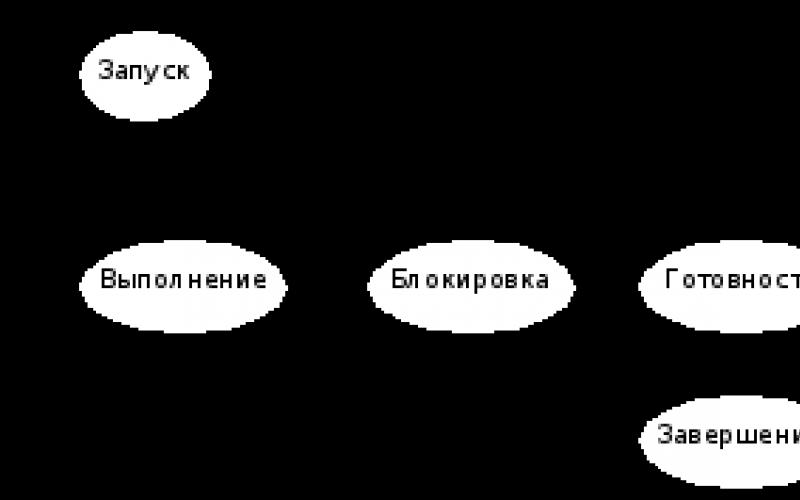The polygraph is a rather complex technical system for conducting psychophysiological studies using special methods. The lie detector examination procedure consists of taking a number of physiological parameters from the subject that arise in response to verbal and other questions that are significant to him.
It is believed that when perceiving pre-prepared questions or visual images, memory processes and traces of stress are activated. Acting according to a well-thought-out plan, the researcher identifies the subject’s reactions to the questions presented to him. The results are displayed on a computer screen or recorded with a special device on paper tape.
Polygraph device
There are several designs of lie detectors. They can be analog devices that involve sequential recording of parameters with pen or other writing devices on paper. Today, digital lie detectors designed on the basis of computer technology are more often used. In any case, it has a sensor unit, sensors for collecting information and a device for recording test results.
The list of reactions that are subject to registration may vary. It is determined by the complexity of the device and the technique used. Typically, the device takes readings of breathing, galvanic skin response, blood pressure and some other characteristics of the cardiovascular system. A tremor sensor is also often used to record subtle trembling of the limbs. The facial expression sensor is used less frequently.
How does a lie detector work?
The polygraph records signals that come from sensors attached to certain parts of the subject’s body. The examination technique is based on the fact that fluctuations in a person’s level of arousal cause a significant change in indicators. In other words, when a person gets excited after hearing a question that is significant to him, the emotional background and associated physiological characteristics immediately change.
It is generally accepted that insincerity or outright lying when answering an expert's question leads to an increase in the level of arousal. This does not happen with a truthful answer. This kind of reaction to stimuli may be associated with a feeling of guilt or a person’s fear of exposure of his lies and the subsequent punishment. The reliability of polygraph examination results is considered very high. Modern methods of research and processing of results make it possible to identify conscious attempts to deceive the polygraph.
The need to use a polygraph is becoming more urgent every day, and the point is not that people are starting to lie more. They always tell lies, but many people think that a lie detector is something fantastic, a tool from movies and only intelligence services can gain access to it, which is fundamentally wrong. Nowadays, everyone is able to resort to the services of a polygraph examiner, regardless of for what purpose the person intends to use it and to whom to apply it.
How does a lie detector work?
To understand how the polygraph works, what the subject reacts to, and what results we can get from his answers, it is necessary to understand the very structure of this device. Surely you have all seen in films old models of polygraphs that used ink, special antennae and paper. Thanks to the vibrations of these antennae, the reaction of the human body was displayed on paper, and the readings themselves were then interpreted and appropriate conclusions were drawn.
Nowadays, no one uses analog (ink) polygraphs, since technology makes it possible to use new (digital) models. They differ from analog polygraphs in that the device itself already consists of personal computer, sensor unit and recording sensors. This allows the polygraph examiner to easily pack the machine into a small suitcase and go to the customer’s location.
The results in the polygraph examiner's report are always focused on the client's needs, so you get only the result that you were interested in
To understand how a lie detector works, you do not need to be a scientist, since in fact the principle of its design is quite simple to understand. Since the basis of the polygraph’s operation is the recording of physiological indicators in the human body, the following sensors are connected to it for measurement:
- electrical conductivity of the skin - by and large, which is a set of reactions of our skin to irritants. Let's say it has been scientifically proven that sweat production reflects the work of certain parts of the brain and therefore galvanic skin reflexes and skin resistance are an integral component of testing;
- cardiovascular activity is simple for us to understand, since it is responsible for pulse, blood pressure, vascular filling with blood, and so on. You yourself understand that the moment a person utters a lie, his pulse automatically quickens, there is more blood in his vessels, and people do not yet know how to block such reactions of the body with their consciousness;
- fixation of lower and upper breathing. Even in psychology, the concepts of abdominal and thoracic breathing are distinguished, and by the way a person breathes, certain character traits can be told about him, and so on. Therefore, in testing using a polygraph, obtaining data regarding a person’s breathing is an integral part.
Important! The above list with explanations is presented here in a form that is clear to the average person, and the full picture of physiological reactions, the significance of their entire complex, the complexity of the process and other points are too serious and profound to be discussed in this article. Now you roughly understand how a polygraph works, without burdening yourself with knowledge that is smart and not really necessary for the average person.
The relevance of the use of the polygraph.
As noted above, most people still think that a lie detector is something complicated and serious for the average citizen to have access to. We tell you that this is not so and now anyone can use the services of a polygraph examiner. If it is difficult for you to imagine in what cases you can use a lie detector, then think about whether you are sure that:
- your business partner conducts business honestly;
- your children are not lying to you and are really good students, do not abuse any kind of substances, does your child have problems that he is afraid to admit;
- your wife is not cheating on you or your future bride is not getting married just for the sake of receiving some kind of material gain;
- employees in your company perform their duties as efficiently as possible and do not steal.
To get high-quality results, you can always contact our company Stability LLC, where the best specialists in this field work
Reference. The range of testing focus is huge, and in cases where you need to find out the truth, this method can be used; moreover, the customer is able to influence what exactly the test will be, which questions interest him more than others, and so on. The results in the polygraph examiner's report are always focused on the client's needs, so you get only the result that you were interested in, and not the one you considered necessary to provide.
Factors influencing the test result.
Even knowing the principle of operation of a polygraph (lie detector), it is necessary to understand the factors that influence the result of the test, and their list, although small, is important for familiarization.
- Education of a polygraph examiner - according to a unified international standard, it is planned to train future specialists on the basis of higher education. The duration of training cannot be less than 400 hours, and in the Russian Federation such courses can be taught up to 1,000 hours, and only after successfully passing the exam a person will be able to receive a polygraph examiner diploma. It is the level of education that is the key factor in testing.
- Erroneous interpretation by a polygraph examiner - since the lie detector measurement is not the lie itself, failure by the specialist to follow the available techniques can lead to an incorrect interpretation of the obtained physiological indicators, which will give erroneous conclusions.
- The prejudice of the person being tested and the polygraph examiner himself is a person’s belief in what he says may be true for his body, even if this information is not true, so the reaction is not always displayed as it really is. A polygraph examiner, having a biased attitude towards a person, cannot examine him normally, since he will draw conclusions based on his prejudices.
- The state of the person being checked - at this point everything should be clear. The accuracy of the results of polygraph testing cannot be accurate if the subject has mental disorders, health problems, especially in the areas recorded by the device, if the person takes pills or has not reached the age of 14-18 years.
- Counteraction - it is argued that there are a number of special techniques by which a person is able to influence the polygraph readings, unnoticed by the polygraph examiner.
Accuracy of results.
There are still ways that lead to ambiguity in the results obtained, since nothing is ideal in our world. But we hasten to assure you of the following: only 5-7 people out of a hundred manage to pass the test in such a way that its results are “incomprehensible”. That is, in such cases we cannot claim that the results are completely accurate, but this in no way means that the polygraph examiner was deceived. Repeated testing usually helps in such situations. Speaking in percentage terms, the accuracy of the detected data is 93-95%, which is a high figure, sufficient even for the reports of polygraph examiners in courts to be evidence of innocence.

Now you know not only how the polygraph works, but also understand exactly in what cases you may need this type of testing, what result you will get, and decide for yourself which identified aspects are more important to you. To get high-quality results, you can always contact our company Stability LLC, where the best specialists in this field work, who have proven their skills over years of impeccable work.
In recent years, lie detector or polygraph testing has become increasingly used in Russia.
Many departmental and commercial organizations use this method when hiring employees, recertifying them, and conducting internal investigations.
In private life, lie detectors are increasingly used to identify facts of adultery, when selecting household staff and screening adolescents over 14 years of age in order to identify risk factors such as drug use, alcohol, participation in socially disapproved activities, etc.
A brief history of the lie detection method in Russia
The lie detector, or more precisely the Special Psychophysiological Study (SPFI) using a polygraph, has recently become widespread. The first freely available polygraphs appeared in Russia in the early 90s, already in the last century. Although for the first time the method of identifying hidden information in our country arose in the 20s of the last century, when the Soviet psychologist, founder of Russian neuropsychology, Professor Alexander Romanovich Luria, supplemented the well-known method of free association with a special device - a monograph, which objectively recorded motor the subject’s reaction to an external stimulus or, more simply put, a question.
Unfortunately, in the early 30s, these experiments, like many other psychological studies in the USSR, were stopped or, more precisely, prohibited by a decision of the party leadership. And the scientific base developed by Russian scientists continued to develop in the USA, where it received practical application in the investigation of criminal crimes.
The revival of methods for identifying hidden information in the USSR began in 1975, when, on the initiative of the Chairman of the KGB of the USSR Yu.V. Andropov, the 30th laboratory of the KGB of the USSR was created, which in 1994 was transformed into one of the departments of the Institute of Forensic Science of the Center for Special Equipment of the FSB of Russia. With a slight delay and also in an atmosphere of secrecy, psychophysiological studies were carried out in the system of the USSR Ministry of Internal Affairs.
Thus, the development of the psychophysiological method of identifying hidden information, or rather the veil of secrecy behind which this direction developed in Russia, contributed to the fact that the application has become overgrown with an incredible amount of speculation and rumors, turning the lie detector into a monstrous instrument, with the help of which the soul is literally pulled out of a person in order to find in it all earthly vices and sins.
Important information for the examinee
Lie detector test as a method of psychodiagnostics
Special Psychophysiological Research using a polygraph is not fundamentally different from other psychological (psychodiagnostic) tests or medical studies, for example, using an electrocardiograph.
A lie detector test, just like any other diagnostic methods, has the following characteristics: standardization, reliability and validity.
The technique has its own area of application, its own specifics and its own limitations, which are characteristic of any method of psychological research.
Important to remember!
A lie detector test is a psychodiagnostic study, the same as measuring temperature with a thermometer or ECG.
Lie Detector Test Safety
Physiologically, the procedure is absolutely safe for the subject. During testing, there is no active effect on the test subject's body. All sensors are passive, i.e. do not have any effect on the body. From a physiological point of view, this study can be compared to measuring body temperature with a conventional medical thermometer.
Psychologically, the procedure can be a source of stress. Before and during testing, all subjects experience anxiety. Those involved are afraid of exposure. Uninvolved in false accusations. Both are afraid that as a result of the research, any socially disapproved actions or intentions that took place in their past will become known. In addition, the questions themselves can cause you to feel indignation, resentment and other unpleasant emotions.
Important to remember!
Physiologically, polygraph examination is safe. Psychologically, this is stress to one degree or another. Be prepared that you may have to experience unpleasant emotions that are typical for every person in a similar situation. Your level of anxiety before the test will be recorded and will not affect your results.
Voluntariness of polygraph examination
Research using a polygraph is carried out only with your voluntary consent. No one can force you to undergo SPFI. Before the start of the study, the polygraph examiner must ask you to sign a Statement or other document indicating your voluntary consent.
You can refuse further testing at any time during the procedure. You are not required to explain the reasons for refusal, either verbally or in writing.
Important to remember!
The research can only be carried out with your voluntary consent.
Lie detector test questions
Before testing, the Customer and the psychophysiologist are required to familiarize you with the topic and questions of the tests.
You can discuss these questions and clarify them. It is important that you and the specialist clearly understand these questions, and that you decide for yourself how you will answer them.
During methodically correct testing, no questions can be asked other than those that have been voiced.
The questions asked may relate not only to the topic being directly investigated, but also to certain aspects of your personality - the level of anxiety, ability to adapt, acceptance of social norms, self-esteem, assessment of the environment, emotionally significant memories, etc. There is no need to be afraid of such questions; they are necessary to obtain an accurate and reliable result.
- Your sexual inclinations.
- Your family and loved ones.
- Your political and religious views.
Important to remember!
There will be no surprise questions on the test. There may be questions that characterize you as a person. There can be no personal questions.
Subject's position during testing
A lie detector test is a psychodiagnostic test, not an interrogation. A good polygraph examiner does not take the position of a prosecutor or lawyer. This is a specialist who conducts a study of the presence in your memory of information about the event under investigation.
If you have nothing to hide on the topic under investigation, then you and the polygraph examiner have a common goal and you are partners helping each other in achieving this goal.
If you are involved, you cannot have a partnership with the polygraph examiner. In this case, you are competitors. Try not to show it. And under no circumstances should you go beyond reasonable limits in competition, forcing a specialist to take retaliatory measures. Remember, a polygraph examiner is also a person and, like any person, is subjective.
In any case, take an active, polite position, ask questions, explain your reactions, remain a Personality.
Important to remember!
The best position during this time is polite, friendly, if possible, a partnership. Interact with a specialist. Don't take the position of a victim.
Position of the polygraph examiner during testing
Unfortunately, as in any other profession, there are different specialists in practical psychophysiology. Moreover, some schools that train polygraph examiners, as well as the methods they develop, have a clearly accusatory bias. Therefore, I recommend paying close attention to the psychological attitude of a polygraph examiner.
Particular attention must be paid to search tests, the questions of which are aimed at clarifying the specific circumstances of the event. Search test questions are formulated as if the polygraph examiner already knows for certain that you committed the event under investigation and the point of the questions is to clarify the details of this event.
A simple example. Question: “Do you drink a glass of vodka every morning? / cognac? / homemade tincture? / moonshine?
If you told the specialist that you drink a glass of alcohol every morning, then this test is completely appropriate. If the fact of daily drinking has not been proven, then using such tests is unacceptable.
Therefore, if, based on the behavior of the polygraph examiner, the meaning of his statements, questions and other signs, you felt a priori guilty, the best solution for you, it would be polite to refuse to undergo testing with this particular polygraph examiner and ask the Customer to replace the specialist.
Important to remember!
The position of a good psychophysiologist is always neutral and friendly. If you are faced with an accusatory position, attempts at threats or any other form of pressure, ask to replace the specialist.
Lying during a lie detector test
As I already wrote, there may be questions in tests that you would not want to answer the truth. This is quite natural. And I do not urge you to be frank.
Sometimes telling the truth is a very difficult and responsible decision.
The only thing I want to warn you about is that the technique cannot distinguish a minor lie from a significant one. And it's not because she's imperfect. The reason is that for your psyche there are no such concepts as big lies and little lies, there are only concepts - lies and truth.
Your physiology reacts equally to the theft of candy from your parents' chest of drawers and to the theft of a million dollars from the country's budget. Therefore, in the process of discussing questions with a psychophysiologist, it would be better for everyone to inform him about the nuances that may arise when answering a specific question. This will allow you to make the results reliable and eliminate unnecessary suspicion.
To clarify this important point, I will give a simple example.
Experience shows that many people have tried soft drugs at least once. This does not mean that they used or use them systematically or are addicted to drugs. Let’s say that in your experience there was a single drug use during a trip to Amsterdam. If the tests ask: “Have you used drugs?” and you answer “no”, the device will record a lie.
Therefore, to the question “Did you use drugs?”, I recommend explaining that there was one case during a trip to Amsterdam. This information will allow the polygraph examiner to reformulate the question as follows: “Except for one time in Amsterdam, have you used drugs?” If this really was an isolated incident, then by answering “no” you will tell the truth and the lie detector will record it. If there were other cases that you decided to keep silent about, the answer “no” will be recorded as a lie.
Important to remember!
It is better to inform the specialist in advance about the presence of minor offenses in your past experience related to the topic of testing in order to exclude their influence on the results.
Preparing for a lie detector test
If you have nothing to hide, then
- Rest the night before the test.
- Refrain from drinking alcohol, sedatives and tonic medications, and large doses of tonic drinks.
- There is no need to overeat or, on the contrary, come in feeling hungry.
- Avoid drinking large amounts of liquids.
- Reschedule your appointment if you are sick or not feeling well.
Behavior during polygraph testing
First of all, calm down, relax. Sit comfortably. If something bothers you or causes discomfort, immediately report it to a specialist.
Directly during testing, try not to make unnecessary movements. Breathe at your usual rhythm. Look ahead. Answer the questions with a monosyllable “yes” or “no.”
Before answering a question, listen to it to the end and understand its meaning. There is no need to try to analyze the specialist’s behavior and evaluate his reactions to your answers. This may increase your stress level and bias your results.
An interval of 15 seconds to several minutes is required between test questions. Be prepared for pauses between questions.
Attempts to fool the lie detector
There is only one reliable way to fool a lie detector - to refuse the test.Everything you read on the Internet or heard from your friends is not true.
You can try and maybe you will be lucky - you will be tested by an unscrupulous or illiterate polygraph examiner, unfortunately, there are many of them.
But if you just come across a good specialist, then you have no chance of deceiving him.
Identified attempts to counteract are immediately recorded and become known to the Customer, who will interpret them at his own discretion, usually not in favor of the subject.
Important to remember!
If you have something to hide on the topic of a lie detector test, then best way refuse research.
In this article, I tried to provide you with the basic information that is necessary for successfully passing a Special Psychophysiological Study using a polygraph or, more simply, a lie detector test.
You can find more complete information on my website at polygraph.club
Sincerely
Psychologist, expert polygraph examiner.
Head of the Laboratory of Psychophysiology and Lie Detection.
Dmitry Kuzovkov.
A polygraph (another name is a lie detector) is used in forensic science to determine the guilt of a suspect. Also, when applying for employment in some companies, job seekers will undergo a polygraph test. Thanks to this, management receives information about whether potential employees have a tendency, for example, to theft, etc.
It should be immediately noted that polygraph testing of people is allowed only to those who have completed special courses and received a certificate of the required type.
Lie detector device
Before agreeing to take a polygraph test, you should inquire about its structure and operating principle. A lie detector is a sensor-type device that, using special sensors, records physiological indicators of a person - blood pressure, heartbeat, muscle tone, blink rate, sweating, etc.
The sensors are connected via wires to a computer, on the monitor of which you can see the test results in the form of various graphs.
It should be noted that attempts to “falsify” the survey results have always been made. The question of how to fool a polygraph has been around for as long as the lie detector itself.
What testing looks like
Sensors are attached to the thing being tested on all sides. And in addition, they sit you down on another sensor and ask you to remain motionless. The fact is that reactions to provocative questions even include involuntary muscle contractions.
Before the procedure begins, the subject must inform the examiner if he has any concerns or needs to go to the toilet. The comfortable state of the person being tested is a prerequisite for such a test, otherwise the results will be far from objective.
Also, at the beginning of the process, the device reads the initial parameters from the person. This is done because many people are concerned about the fact of verification, and not about hypothetical guilt. An honest and decent person may well turn out to be neurotic or simply overly impressionable. That is why the indicators obtained during the audit must be compared with the initial ones.

Is this test really that serious?
In principle, it is quite possible to fool a lie detector. After all, a polygraph test is carried out by a program based on measurements of the physical indicators of your body: pulse rate, breathing, blood pressure, etc. And if you remain calm when answering the questions you are asked, then changes in state will not be perceived by the device.
At first glance, this is the whole secret of how to deceive a polygraph. But know that the program will also take into account your efforts to remain calm and control your own reactions. And, in turn, he will use a “distracting maneuver” - for the first time (about twenty minutes) you will be asked the simplest questions in order to lull your vigilance and “adjust” the device specifically for you.
What can affect the result
The main factor is the correct internal state of the subject. How to pass a polygraph according to all the rules? The person being tested must sit completely static; he is prohibited from moving his arms, legs, eyes, head, tensing any muscles, or even swallowing saliva. These actions can cause an involuntary physiological reaction, recorded by a polygraph and affecting the result.
So, is it possible to pass a polygraph test with the result you want? Or, to put it more simply, can the device be fooled?
If a person is accused of a serious crime, then sometimes a lie detector may be the only chance to prove his own innocence. Therefore, it is useful to have an idea of how to pass a polygraph at the Ministry of Internal Affairs.

How it's done
First of all, on the eve of testing, be sure to get a good night's sleep. Answers to polygraph questions should be given as truthfully as possible; in case of any misunderstandings, everything should be explained in detailed detail as calmly as possible.
If your biography contains any violations or other negative aspects, you should not remain silent about them. It is much wiser to immediately openly talk about them. There is no point in being nervous for a law-abiding citizen.
How to pass a polygraph to your advantage
Experts working with the device assure that this is not easy to do. Only a person who has thoroughly studied the principle of its operation and has excellent self-control can outwit a lie detector.
At first glance, maintaining external equanimity is not such a difficult task. But the detector captures and records the parameters of the internal state! And it is very, very difficult to control them. If a person tells a lie in response to a question, his body reacts to the lie involuntarily, regardless of the desire to hide the truth. The device will only be able to “swallow” an obvious lie when the subject either sincerely believes what he is saying, or gives an answer “automatically” - i.e. without analyzing your own words.

Don’t get hung up on the significance of what’s happening and don’t immediately prepare for the worst. To successfully pass the test, you should simply relax, especially if you are not guilty of anything. In this case, the question of how to pass a polygraph simply should not bother you.
With this approach, your anxiety will subside, you will not begin to painfully go through all your past sins. Let's say they often ask whether there have been episodes of theft in your life. An honest and decent person, who is fundamentally incapable of appropriating someone else’s property, suddenly remembers a trivial childhood episode - a toy taken without permission from kindergarten.
This memory confuses him, internal tension is immediately recorded by the device, and an honest answer “No” will be recorded as a lie. That is why during testing, do not try to go through past memories and do not delve deeply into the questions asked. Answer honestly, but at the same time slightly “mechanical” and rather indifferent.

How to achieve automation
As already mentioned, a detached, calm state will help to deceive the polygraph - when a person does not try to form mental images of life situations in his mind. But it’s not easy enough to completely detach yourself and give negative and positive answers in a timely manner, alternating them correctly. Only a few truly succeed in this.
How to achieve the desired state? Try to mentally switch to any other problem that is relevant to you. In this way, you seem to isolate yourself from the questions being asked; accordingly, you do not analyze them and do not imagine images of situations that are critical for you.
From the history of the lie detector
The first version of the polygraph was invented and used in 1895 by Italian psychiatrist Cesare Lombroso. He called the device a hydrosphygometer.
But a real lie detector capable of assisting in the investigation of crimes appeared only in 1921. It was invented by police officer John Larsen.
The polygraph turned out to be able to record the most insignificant changes in the psychophysical state of the subject, thanks to which the specialist became clear about the degree of truthfulness of his answers. This principle formed the basis for the use of a lie detector for a long time and continues to this day.

For whom testing is contraindicated?
Women who are pregnant have the right to refuse the test. In addition, it is prohibited to test adolescents who have not reached the age of majority. If necessary, they can undergo testing with the written permission of the parents (as well as persons guarding the child) or in their presence.
An important point: passing a polygraph test is possible only with the written consent of the subject - you must know this in order to prevent violation of your rights.
Now you know how to pass a polygraph competently. We hope this information will help you avoid mistakes and defend your own interests if necessary.
How does a polygraph work? How is it checked? Passage procedure (10+)
Polygraph
Recently, our country has been rapidly borrowing new technologies. Among such borrowings there are polygraph (lie detector). In many organizations and companies, polygraph testing is included in the list of activities for selecting candidates for responsible positions. Let's figure out what a polygraph is.
How the polygraph works
A lie detector is a device that measures and records various characteristics of our body. Based on these characteristics, a conclusion is made about whether a person is telling the truth or lying. Depending on the complexity and cost of the polygraph, it can measure a different number of characteristics. These could be:
- Pulse (in a more complex version, an ECG is taken - an electrocardiogram),
- Pressure,
- Depth and frequency of breathing,
- Temperature, humidity and electrical conductivity of the skin,
- Voice volume and timbre
- Movements and micro-movements of the body (trembling, involuntary muscle contractions),
- Behavior of the pupils of the eyes (I saw a description of such a device, but never saw it in person),
- Other psychosomatic phenomena
The principle of operation of a lie detector is based on the assumption that when lying, a person experiences stress. The body reacts to stress, and this reaction can be monitored with devices.
Lie detector test
The polygraph, contrary to popular belief, is not an objective instrument. The qualifications of the polygraph operator (polygraph operator) are very important. The operator is required to:
- Create a proper survey plan.
- Qualifiedly interpret the results of recording psychosomatic reactions during the survey.
Often, a whole team of specialists is involved in polygraph testing to eliminate subjectivity.
Let me give you an example. In the example, I will deliberately simplify everything. You should not think that after reading the example, you will immediately become a polygraph expert. So, different people have different reactions to stress in general and lying in particular. Therefore, the device needs to be calibrated. To do this, at the beginning of the survey, the subject is tasked with answering all questions negatively. Next, meaningless questions are asked, answering “no” to which, in some cases, he will have to lie. Are you a hippopotamus? - No, it's true. Are you breathing now? - No - Lie. Or, say, the subject is told to wish for some card from the deck. Now he is shown cards in sequence. He must always say no. Once, when the hidden card is shown, he will lie. By asking such questions, one can determine how the subject's body reacts to the need to lie, and how it behaves when the subject tells the truth.
But an experienced printer knows that a person can react differently to a trifling lie and to a serious deception. In addition, not only lies, but also, for example, offensive statements can cause an active reaction. I came across such a case in the press (I don’t know if it’s true or not, but it’s very significant). A devout Baptist failed the "Are you cheating on your wife" question, even though he was clearly found to be clean. The reason was his sincere indignation that such an idea could even occur to someone.
In addition, the subject can control his reactions to some extent. Therefore, the interview plan is structured in such a way that the subject is asked the same question in different forms, from different positions. During part of the interview, the subject is asked to answer always in the negative. At this stage, the real answer is determined by the polygraph readings. The fact is that learning to suppress your reaction to a lie is much easier than learning to cause it. Answering “no” to the question of whether you take bribes and not blinking an eye is much easier than answering the same question “yes” and at the same time showing with your psychosomatic reactions that you are lying, that is, in fact you do not take bribes.
Typically, when testing, the test subject must answer only “yes” or “no.” But in some cases, it is proposed to freely talk about the event, while monitoring the psychosomatic state is carried out to determine where the person deviates from the truth. This method belongs to the aerobatics of forensic science, is not reliable and is not used for commercial checks.








